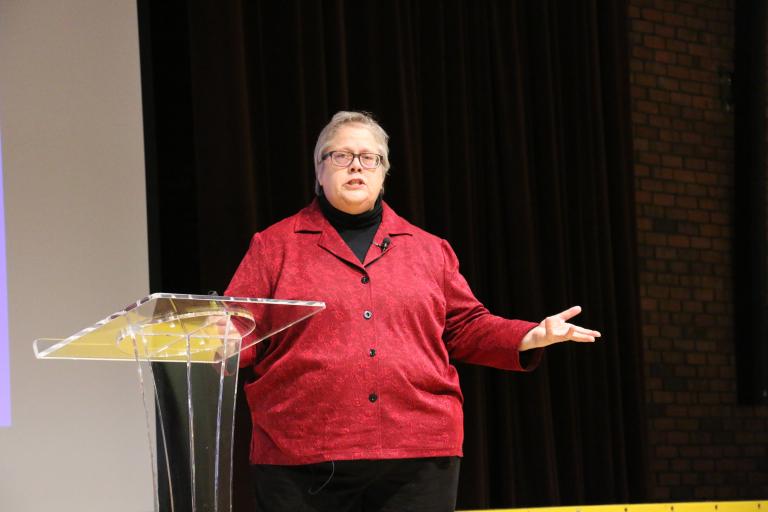
“This is another example of world-class scientists investing in Flint’s future.”
Dr. Laura Sullivan, Mechanical Engineering faculty member at Kettering University, is collaborating with a research team from Wayne State University to evaluate the risk between the Flint water system and potential health problems in the community.
The team has formed the Flint Area Community Health and Environment Partnership (FACHEP). The research group will conduct an independent study to evaluate the possible association between changes in Flint’s water system and public health, specifically last year's Legionnaires’ disease outbreak. The first phase of the investigation began on March 1, with FACHEP researchers engaging with the community to set up enhanced disease and environmental surveillance in Flint and Genesee County.
“It’s an honor to work alongside such respected researchers and public health officials working in tandem to improve the city of Flint and Genesee County.” Sullivan said. “This is another example of world-class scientists investing in Flint’s future as we attempt to solve our current water challenges.”
Other members of the research team include:
- Shawn McElmurry, Environmental and Civil Engineering professor at Wayne State
- Paul Kilgore, Epidemiological Investigator at Wayne State
- Matt Seeger, Crisis and Emergency Risk Expert at Wayne State
- Mark Zervos, Division Head of Infectious Diseases at Henry Ford Hospital
Sullivan’s role is to augment community engagement by serving as a liaison between the FACHEP and the greater Flint community.
Dr. Laura Sullivan continues to play a leading role in Flint's recovery from the water emergency.
“The scientific decisions that will enhance the bright future of Flint will be made collectively with the community,” Sullivan said. “It is my personal and professional responsibility to ensure that the citizens of Flint have a voice in this process.”
Sullivan, a material engineer by trade, first became involved in Flint’s water issue in Summer 2014, well before elevated levels of lead were detected in the water supply. She worked with activists in the community lobbying for fair water rates. As the issue shifted from affordability to contamination over the next year, Sullivan’s role expanded from an advocate to a consultant as she was appointed to the Flint’s Technical Water Advisory Board, which she now co-chairs. Flint Mayor Karen Weaver has also appointed Sullivan to the Karegnondi Water Authority.
Earlier this year, Sullivan was appointed to the Flint Water Inter-Agency Coordinating Committee by Michigan Governor Rick Snyder. Her interdisciplinary role is to continue to build trust between local and state governments, stakeholders in Flint and citizens in the community. The task force is made up physicians, scientists, citizens and expert advisors and serves to advise the city of Flint on how to remedy the current water challenges in Flint.